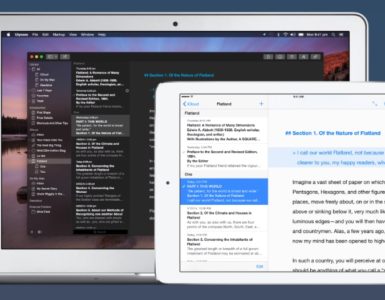Traditional publishing is dead. There's just no need for it any more.
"But Mark," you say, "the stores are full of books! Hundreds of new books are published every week!"
And that's true. But in many ways, traditional publishers are like zombies: thrashing around, moaning, apparently alive. But, like all zombies, traditional publishers are, in fact, nothing more than pitiful mimics. They shuffle here and there. They go through the motions. They imitate life.
But they are, in fact, the walking dead. The Internet killed them. And while they will deny this reality for decades to come, the sooner writers wake up to it, the better.
Out with the Old
Traditional publishers employ hordes of people to acquire, edit, design, layout, market, sell, warehouse, print, and sell books, plus a small army of back-office personnel for administrative and bookkeeping duties. Because a book must pass through so many hands — and because the industry is hobbled by quaint but antiquated customs, including book fairs, trade shows, and publication calendars — transforming a manuscript into a retail product often takes more than a year.
It's not surprising, then, that traditional publishers — with their bloated staff, high overhead, and antiquated sales and distribution systems — represent the slowest, most expensive, and least rewarding way for writers to get their words into the hands of eager readers.
In with the New
Today, any writer, virtually anywhere in the world, can make his or her work available to anyone, anywhere … in seconds … for little or no upfront cost at all.
Want to write a book? Do it. Want to share your book with millions of people? Put it on the 'net. That's really all there is to it.
I'm not talking about blogging a book — though that's certainly an option. If you like, you can lay out the book yourself and distribute it as a downloadable .PDF file. If you or your readers prefer bound books, you can upload your manuscript to services like Lulu.com, a service that prints books on-demand, as readers order them, at no cost to the author. And with services like BookSurge, your book can be available to millions of potential readers at the world's largest bookstore — Amazon.com — at little or no cost to you.
Instead of waiting more than a year for a copy of your book (and even longer for your first royalty check), readers can start buying your book within forty-eight hours after the manuscript is uploaded. That's a modern-day miracle that no traditional publisher can match.
Better for Writers, Too
Traditional publishers pay a royalty (usually between four and seven percent) on the wholesale price of a book. Why so little? Two reasons. First, a traditional publisher's tremendous overhead gobbles up revenue, leaving less for the writer. Second — as one of my editor friends once explained to me — contracts are few, and writers are many. "We pay writers as little as possible," she said, "because we can."
By contrast, writers earn a 35% royalty on the list price of every book sold through Amazon.com's BookSurge service.
Consider Lucid Dreaming for Beginners, one of my own traditionally-published books. The list price is $13.95, so the wholesale price is around $6.99. With the six percent royalty spelled out in my contract, I receive a whopping forty-two cents for every copy sold at full retail price. To date, about 8,000 copies have sold, so my total earnings for that book are about $3,360 USD. That doesn't sound too shabby, until you realize that, given the amount of time I spent researching and writing that book, I signed over all rights to that book for about $3.50 an hour.
Had I published through BookSurge and sold the same number of copies of that book through Amazon.com, I would have earned $39,060.00 USD — or closer to forty dollars an hour. (Heck, if just 700 copies sold, I would have earned more than I earned from my traditional publishing contract.) What's more … I would still own the rights to the book, and could re-package and resell it as I please.
Consider, too, that royalties from BookSurge are paid thirty-five days after the sale of a book. By contrast, Llewellyn (my first publisher) pays just twice a year — essentially granting themselves free use of my royalty money, interest free, for months at a time.
Coming to Terms with Reality
Today, if you want to publish a book, there's nothing but fear, laziness, or a lack of focus standing in your way … and there's absolutely no reason — especially if you're writing a niche-market book — to work with a traditional publisher.
Realizing this — doing the math, looking at the business case, and considering my own goals as a writer — has been a sobering experience for me.
Writing is a business, and that business — from the way a manuscript is created to the way it is distributed — has evolved. The old model — writers laboring in isolation, manuscripts slouching toward publication, publishers pocketing most of the cash — isn't just broken … it's dead.
Rather than hang out with the zombies, I've decided it's time to take advantage of what the digital age has to offer … and, as you'll see when I launch my next little experiment, that's going to change the way I write for you forever.
Traditional publishing is dead. There's just no need for it any more.
"But Mark," you say, "the stores are full of books! Hundreds of new books are published every week!"
And that's true. But in many ways, traditional publishers are like zombies: thrashing around, moaning, apparently alive. But, like all zombies, traditional publishers are, in fact, nothing more than pitiful mimics. They shuffle here and there. They go through the motions. They imitate life.
But they are, in fact, the walking dead. The Internet killed them. And while they will deny this reality for decades to come, the sooner writers wake up to it, the better.
Out with the Old
Traditional publishers employ hordes of people to acquire, edit, design, layout, market, sell, warehouse, print, and sell books, plus a small army of back-office personnel for administrative and bookkeeping duties. Because a book must pass through so many hands — and because the industry is hobbled by quaint but antiquated customs, including book fairs, trade shows, and publication calendars — transforming a manuscript into a retail product often takes more than a year.
It's not surprising, then, that traditional publishers — with their bloated staff, high overhead, and antiquated sales and distribution systems — represent the slowest, most expensive, and least rewarding way for writers to get their words into the hands of eager readers.
In with the New
Today, any writer, virtually anywhere in the world, can make his or her work available to anyone, anywhere … in seconds … for little or no upfront cost at all.
Want to write a book? Do it. Want to share your book with millions of people? Put it on the 'net. That's really all there is to it.
I'm not talking about blogging a book — though that's certainly an option. If you like, you can lay out the book yourself and distribute it as a downloadable .PDF file. If you or your readers prefer bound books, you can upload your manuscript to services like Lulu.com, a service that prints books on-demand, as readers order them, at no cost to the author. And with services like BookSurge, your book can be available to millions of potential readers at the world's largest bookstore — Amazon.com — at little or no cost to you.
Instead of waiting more than a year for a copy of your book (and even longer for your first royalty check), readers can start buying your book within forty-eight hours after the manuscript is uploaded. That's a modern-day miracle that no traditional publisher can match.
Better for Writers, Too
Traditional publishers pay a royalty (usually between four and seven percent) on the wholesale price of a book. Why so little? Two reasons. First, a traditional publisher's tremendous overhead gobbles up revenue, leaving less for the writer. Second — as one of my editor friends once explained to me — contracts are few, and writers are many. "We pay writers as little as possible," she said, "because we can."
By contrast, writers earn a 35% royalty on the list price of every book sold through Amazon.com's BookSurge service.
Consider Lucid Dreaming for Beginners, one of my own traditionally-published books. The list price is $13.95, so the wholesale price is around $6.99. With the six percent royalty spelled out in my contract, I receive a whopping forty-two cents for every copy sold at full retail price. To date, about 8,000 copies have sold, so my total earnings for that book are about $3,360 USD. That doesn't sound too shabby, until you realize that, given the amount of time I spent researching and writing that book, I signed over all rights to that book for about $3.50 an hour.
Had I published through BookSurge and sold the same number of copies of that book through Amazon.com, I would have earned $39,060.00 USD — or closer to forty dollars an hour. (Heck, if just 700 copies sold, I would have earned more than I earned from my traditional publishing contract.) What's more … I would still own the rights to the book, and could re-package and resell it as I please.
Consider, too, that royalties from BookSurge are paid thirty-five days after the sale of a book. By contrast, Llewellyn (my first publisher) pays just twice a year — essentially granting themselves free use of my royalty money, interest free, for months at a time.
Coming to Terms with Reality
Today, if you want to publish a book, there's nothing but fear, laziness, or a lack of focus standing in your way … and there's absolutely no reason — especially if you're writing a niche-market book — to work with a traditional publisher.
Realizing this — doing the math, looking at the business case, and considering my own goals as a writer — has been a sobering experience for me.
Writing is a business, and that business — from the way a manuscript is created to the way it is distributed — has evolved. The old model — writers laboring in isolation, manuscripts slouching toward publication, publishers pocketing most of the cash — isn't just broken … it's dead.
Rather than hang out with the zombies, I've decided it's time to take advantage of what the digital age has to offer … and, as you'll see when I launch my next little experiment, that's going to change the way I write for you forever.



Add comment